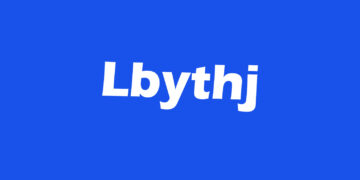Online learning is growing fast. Many new platforms promise simple lessons, low prices, and flexible time. One name you may see is Courseto. In this guide, I explain what public sources say about Courseto, how it fits the online learning world, and what checks you should do before you join. I also give clear tips to choose a safe, good course in 2025. The language is simple and friendly, so anyone can read it.
What public sources say about Courseto
Several recent articles describe Courseto as a global online learning site that offers flexible, affordable, skill-based courses. They say it focuses on topics such as digital marketing, online business, and technology, and aims to help both learners and instructors. These claims appear in multiple “news/blog” websites from late 2025.
However, I could not find a clear, verifiable official website for Courseto, a public company profile, or independent user reviews from trusted sites. Because most current mentions look like promotional articles rather than independent reports, you should treat the claims with care and do your own checks before you pay or share data.
Key point: It is normal for a new platform to start small. But when reliable details are limited, you should verify basics such as company identity, course catalog, prices, refund rules, and how your data is protected. The sections below show how to do that.
Where Courseto fits in the bigger online learning picture
The demand for online learning is strong. Many adults use short online courses to upskill for work. Major studies show steady growth in adult learning and the use of flexible, digital formats.
Well-known platforms show what “good” can look like:
- Coursera partners with top universities and companies, offering degrees, professional certificates, and free courses.
- edX hosts courses and programs from universities like Harvard and MIT.
- Alison offers many free courses and certificates and shows scale data (learners, graduates, countries).
- Google Career Certificates focus on job skills such as IT support, data analytics, and digital marketing.
When you compare any new platform, check how it measures up against these standards: transparent partners, real course lists, clear prices, recognized credentials, and visible learner feedback.
Benefits of online learning (and limits you should know)
Research and best-practice guides note common benefits of online learning: flexible time, access from anywhere, and more options for people with different needs.
But there are trade-offs to watch:
- Course quality varies a lot by provider and by instructor. Independent reviews or recognized quality rubrics can help you judge a course before you buy.
- Not all certificates are equal. Some carry employer recognition; others do not. Policy reports also show how skills and credentials link to work outcomes and why quality and equity matter.
- Data privacy matters. The U.S. Federal Trade Commission has taken action against poor data practices in online education. This shows why you should read privacy policies and choose platforms that protect your data.
A careful way to check a new platform like Courseto
Use this simple checklist before you sign up anywhere new:
- Identity and website
Look for a clear official website, a company name, and contacts you can verify (address, email domain, social profiles that show real activity). If you cannot find these, be careful. - Course catalog and instructors
See full course pages with outcomes, lesson plans, and named instructors. Search the instructor names to confirm real profiles and experience. - Credentials and partners
Does the platform show partners (universities, companies)? Are there recognized certificates or external validations? Compare this to what large platforms show. - Price, refunds, and trials
Look for clear prices, refund rules, and any free trial or free lessons. If terms are vague, that is a red flag. - User reviews
Search for independent reviews from trusted sites. Watch out for copy-paste articles that all repeat the same marketing lines. (So far, most “Courseto” pieces look promotional rather than independent). - Data privacy and security
Read the privacy policy. Make sure the site uses HTTPS. If the platform collects ID or payment data, see how it protects that data. - Learning support
Check if there is discussion support, live help, deadlines, and ways to ask questions. Good design and support increase learner success.
Comparing Courseto’s public claims to established norms
Public claims (from recent articles): Courseto offers flexible, affordable, skills-based courses for global learners and also helps instructors publish and earn.
Established norms on well-known platforms: clear partners, robust catalogs you can browse, recognized certificates, and many independent reviews.
What’s missing for Courseto today: I could not locate a verifiable official site with full course pages, a public partner list, pricing tables, or a privacy policy. Until those appear, treat Courseto as “unconfirmed” and do extra checks.
Practical steps if you still want to try Courseto

- Search for the official hub
Use careful search terms (for example, “Courseto site:com” plus the current year). Make sure the site you find is the real one, not a look-alike or a parked domain. - Ask for samples
If possible, watch a sample lesson or join a free webinar. See if the teaching style is clear and if the platform is easy to use. - Start small
If you decide to test it, begin with a low-cost or free option before you buy longer programs. Keep copies of receipts and emails. - Check refund and support
Read the refund policy line by line. Test the support channel with a real question before you pay. - Compare value
Put Courseto side by side with a similar course from a known platform (for example, a beginner digital marketing course on Coursera, edX, or Google Career Certificates). Compare content length, outcomes, and price.
Why simple, job-ready skills matter in 2025
Large studies on adult learning stress that short, focused skill training helps workers keep up with fast tech change. That is why many platforms now offer micro-credentials and job-ready paths. When you choose a course in 2025, look for clear learning goals and practice tasks that match real work.
Summary
- Articles from late 2025 describe Courseto as a flexible, affordable online learning platform, but these are mainly promotional posts. Independent proof (official site, partners, catalog, reviews) is still hard to find.
- Online learning can be a great way to grow skills, but you should use a careful checklist before you buy: identity, course pages, instructors, credentials, prices, reviews, privacy, and support.
- If you want a safe starting point, compare any new platform with trusted providers like Coursera, edX, Alison, or Google Career Certificates.
Frequently Asked Questions (FAQs)
- What is Courseto?
Public articles describe Courseto as an online learning platform with flexible, low-cost courses for skills like business, tech, and digital marketing. These are claims from third-party blogs, not official pages. - Is Courseto a trusted brand?
Right now, I could not find strong independent proof such as an official website with full course pages, a partner list, or verified user reviews. Because of this, treat the platform as unconfirmed and verify details yourself. - How can I check if Courseto is real?
Verify the official site, company identity, contacts, and policies. Look for real course listings and instructors you can cross-check. - What should I compare Courseto against?
Compare with platforms that show clear partners and outcomes, such as Coursera, edX, Alison, or Google Career Certificates. Check cost, depth, time needed, and recognition. - Are there free or low-cost alternatives?
Yes. Coursera and edX have many free courses. Alison
Relatable topic: Methatreams, Techsslaash com, Pabington, EducationBeing com














































